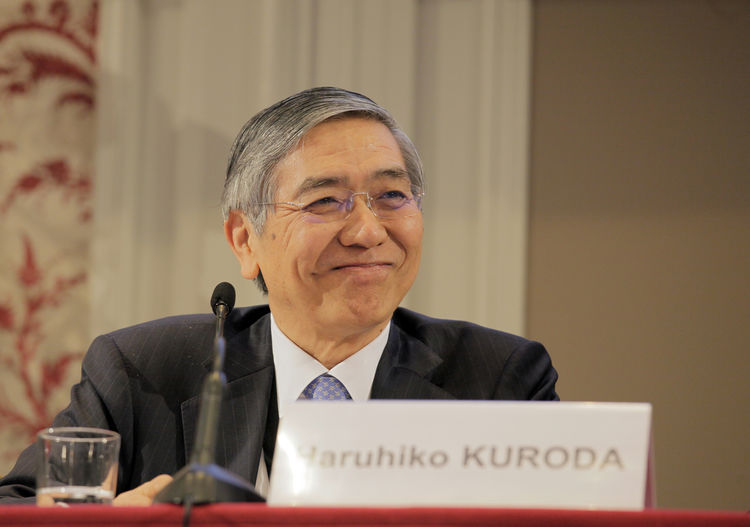Markets
BOJ Stands Pat Even as It Delays Timing of Inflation Goal

- BOJ Stands Pat Even as It Delays Timing of Inflation Goal
The Bank of Japan kept its monetary policy unchanged while delaying the projected timing for reaching its inflation goal beyond Haruhiko Kuroda’s term.
Kuroda led his board in voting to maintain its targets for controlling short-term and long-term rates and its asset-purchase programs, decisions widely expected by economists after the BOJ re-set its monetary program in September following a comprehensive policy review.
In its quarterly economic-outlook report also released Tuesday, the BOJ shifted the projected timing for reaching its inflation target of 2 percent. It said consumer prices excluding fresh food would “increase toward 2 percent” in the second half a period that runs through March 2019, suggesting inflation may not approach the target until the spring of that year, long after Kuroda’s current term ends.
It had delayed the projected timing several times during Kuroda’s tenure, with the most recent target being the fiscal year ending in March 2018.
Kuroda said later Tuesday that it was regrettable the BOJ hadn’t reached 2 percent inflation within two years, its goal when he took the helm of the central bank in 2013. He declined to comment on his possible reappointment as governor, saying it was a matter for the government.
“As for the appointment of the BOJ governor, the cabinet will decide with the approval of both houses of parliament,” he said during an afternoon news conference.
In the outlook report, the BOJ also said “risks to both economic activity and prices are skewed to the downside,” language not included in their previous release in July. This shift “suggests that the bank retains an easing bias,” Capital Economics economist Marcel Thieliant wrote.
The yen weakened 0.1 percent against the U.S dollar and traded at 104.94 at 12:14 p.m. The Topix index had dropped 0.3 percent in morning trading.
The BOJ kept its target for the 10-year government bond yields at around zero percent, and left the policy rate on a portion of commercial bank reserves at minus 0.1 percent. The bank also said it will continue buying Japanese government bonds at a annual pace of about 80 trillion yen ($764 billion), and maintained its previous plans for purchases of other assets, such as exchange-traded funds.
Board members on Tuesday also updated their economic projections. The median estimates compared with the previous ones, released in July, were as follows:
- Inflation forecast for fiscal 2016 cut to -0.1 percent from 0.1 percent
- Inflation forecast for fiscal 2017 cut to 1.5 percent from 1.7 percent.
- Inflation forecast for fiscal 2018 cut to 1.7 percent from 1.9 percent.
- GDP projection for fiscal 2016 unchanged at 1 percent.
- GDP projection for fiscal 2017 unchanged at 1.3 percent.
- GDP projection for fiscal 2018 unchanged at 0.9 percent.
The new projections follow the results of the BOJ’s comprehensive review, which concluded that households’ and companies’ inflation expectations hadn’t evolved as the central bankers had anticipated. Instead of reacting to the BOJ’s historic monetary stimulus by building in expectations of faster inflation, Japanese have instead been strongly influenced by the many years of past price declines.
Kuroda and other board members, including Deputy Governor Kikuo Iwata, had signaled in recent weeks that getting to 2 percent inflation will take more time.
Takeshi Minami, chief economist at Norinchukin Research Institute, said the BOJ remained optimistic about inflation in fiscal 2017 even after cutting the forecast, noting that the central bank had shifted to a long-term strategy.
“They are choosing to let the current monetary easing bring positive effects to the economy gradually, rather than forcing something to stimulate it,” Minami said. “In a sense, the BOJ is back to the Shirakawa regime. Shirakawa’s BOJ took the stance of saying to the government that they are doing enough monetary easing,” he said, referring to Kuroda’s predecessor Masaaki Shirakawa.
Kuroda will have the opportunity to expand on today’s policy decision at a press briefing this afternoon in Tokyo.